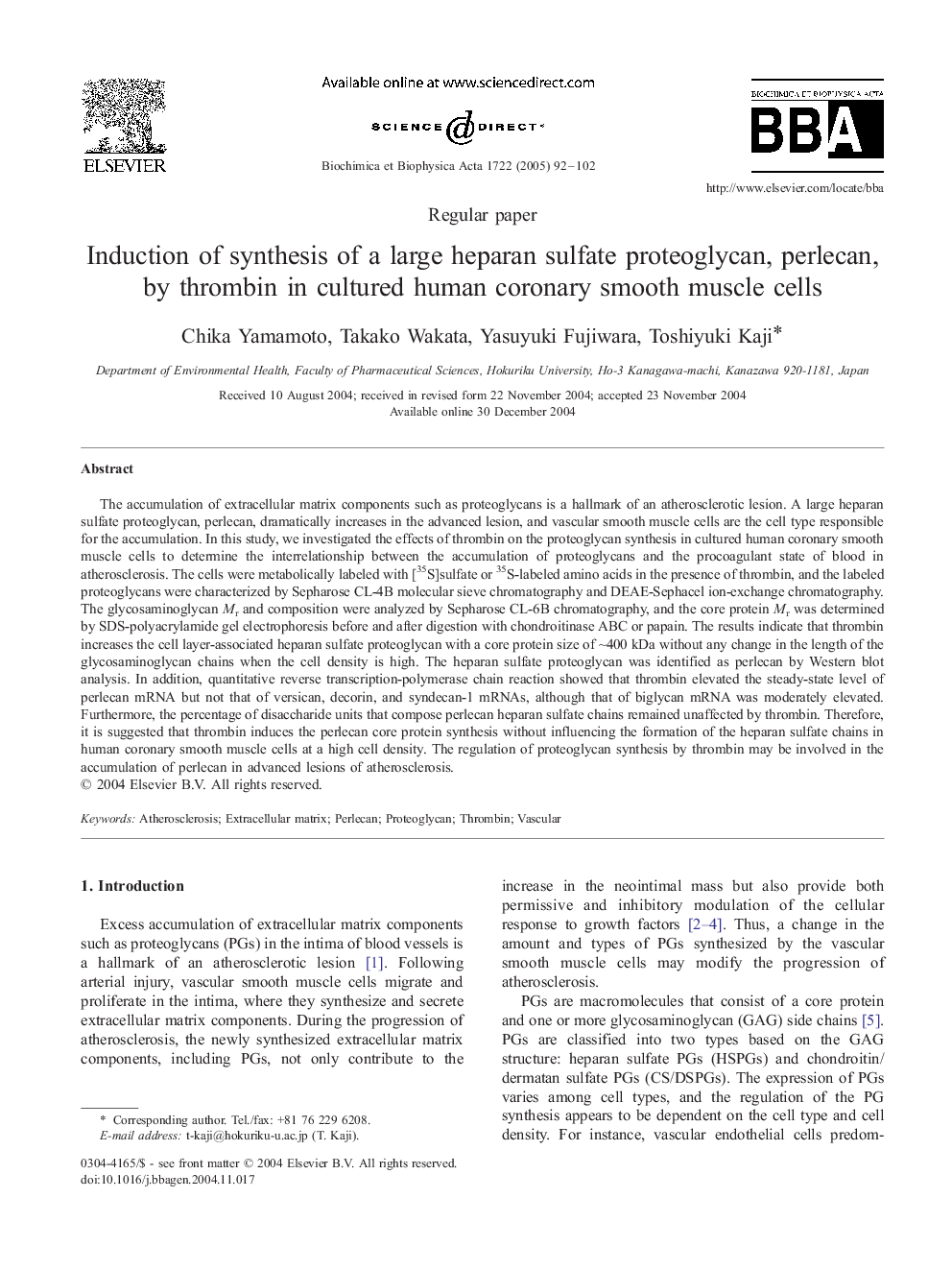| Article ID | Journal | Published Year | Pages | File Type |
|---|---|---|---|---|
| 10801119 | Biochimica et Biophysica Acta (BBA) - General Subjects | 2005 | 11 Pages |
Abstract
The accumulation of extracellular matrix components such as proteoglycans is a hallmark of an atherosclerotic lesion. A large heparan sulfate proteoglycan, perlecan, dramatically increases in the advanced lesion, and vascular smooth muscle cells are the cell type responsible for the accumulation. In this study, we investigated the effects of thrombin on the proteoglycan synthesis in cultured human coronary smooth muscle cells to determine the interrelationship between the accumulation of proteoglycans and the procoagulant state of blood in atherosclerosis. The cells were metabolically labeled with [35S]sulfate or 35S-labeled amino acids in the presence of thrombin, and the labeled proteoglycans were characterized by Sepharose CL-4B molecular sieve chromatography and DEAE-Sephacel ion-exchange chromatography. The glycosaminoglycan Mr and composition were analyzed by Sepharose CL-6B chromatography, and the core protein Mr was determined by SDS-polyacrylamide gel electrophoresis before and after digestion with chondroitinase ABC or papain. The results indicate that thrombin increases the cell layer-associated heparan sulfate proteoglycan with a core protein size of â¼400 kDa without any change in the length of the glycosaminoglycan chains when the cell density is high. The heparan sulfate proteoglycan was identified as perlecan by Western blot analysis. In addition, quantitative reverse transcription-polymerase chain reaction showed that thrombin elevated the steady-state level of perlecan mRNA but not that of versican, decorin, and syndecan-1 mRNAs, although that of biglycan mRNA was moderately elevated. Furthermore, the percentage of disaccharide units that compose perlecan heparan sulfate chains remained unaffected by thrombin. Therefore, it is suggested that thrombin induces the perlecan core protein synthesis without influencing the formation of the heparan sulfate chains in human coronary smooth muscle cells at a high cell density. The regulation of proteoglycan synthesis by thrombin may be involved in the accumulation of perlecan in advanced lesions of atherosclerosis.
Related Topics
Life Sciences
Biochemistry, Genetics and Molecular Biology
Biochemistry
Authors
Chika Yamamoto, Takako Wakata, Yasuyuki Fujiwara, Toshiyuki Kaji,
